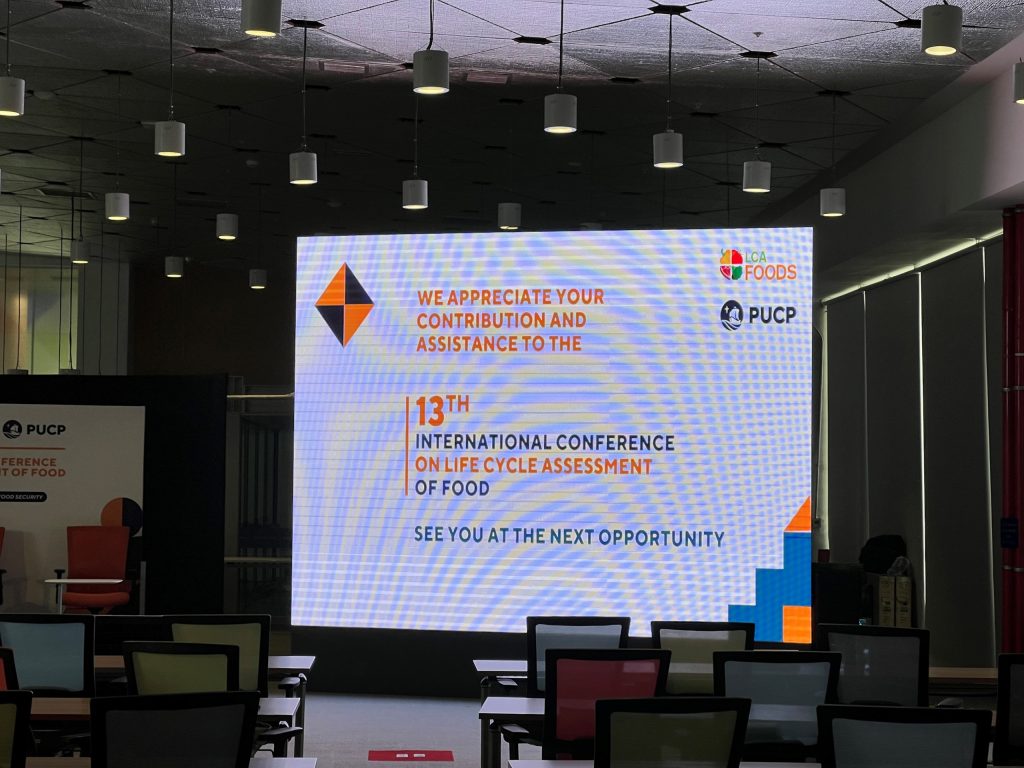The 13th International Conference on Life Cycle Assessment (LCA) of Food was held in Lima, Peru from October 12-15, 2022. Food LCA experts from all over the world presented the latest research results. The corsus team was also represented at the conference with several presentations: Dr. Ulrike Eberle and Nico Mumm presented in two lectures the results of the Besseresser:innen study, in which corsus determined the environmental impact of nutrition in Germany on behalf of WWF Germany.
Sustainable food systems are one of corsus’ main areas of work. On behalf of WWF Germany, corsus has calculated the environmental impact of nutrition in Germany. The study builds on a study conducted by corsus on behalf of the Federal Environment Agency in 2016 and continues the work from the research project Ernährungswende, in which the environmental impact of nutrition in Germany was quantified for the first time in 2005.
In the study for WWF Germany, corsus has now for the first time also quantified the environmental impacts in relation to water scarcity and biodiversity. In addition, scenarios were developed to elicit how environmental impacts would develop if the recommendations of the Eat Lancet Commission, which has developed recommendations for a diet that benefits the planet, were followed.
In his presentation, Nico Mumm outlined how the model was developed and, in particular, how the impacts on biodiversity and water scarcity were quantified. For the first time, corsus has developed country- and product-specific characterization factors for ecoregions to calculate impacts on biodiversity, thus contributing to the methodological discussion on impact assessment of biodiversity impacts through food production.
Dr. Ulrike Eberle presented at the conference how the scenarios were developed and how the environmental impacts would evolve. First of all, it can be stated that we eat far too much on average in Germany today. Environmental impacts could be reduced simply by reducing the quantities to a recommended level. At the same time, it could be shown that a vegetarian or vegan diet according to the recommendations of the Eat Lancel Commission would lead to significant reductions in most environmental impacts. Thus, greenhouse gas emissions, land footprint, and biodiversity impacts could be reduced to about half. Only impacts related to water scarcity would increase – caused primarily by citrus and California almond consumption.
The abstracts of the presentations will be published in the conference proceedings of the International Food LCA Conference (in English). If you are interested in receiving the abstracts, please email anfrage@corsus.de.
More information about corsus: Homepage – Corsus
